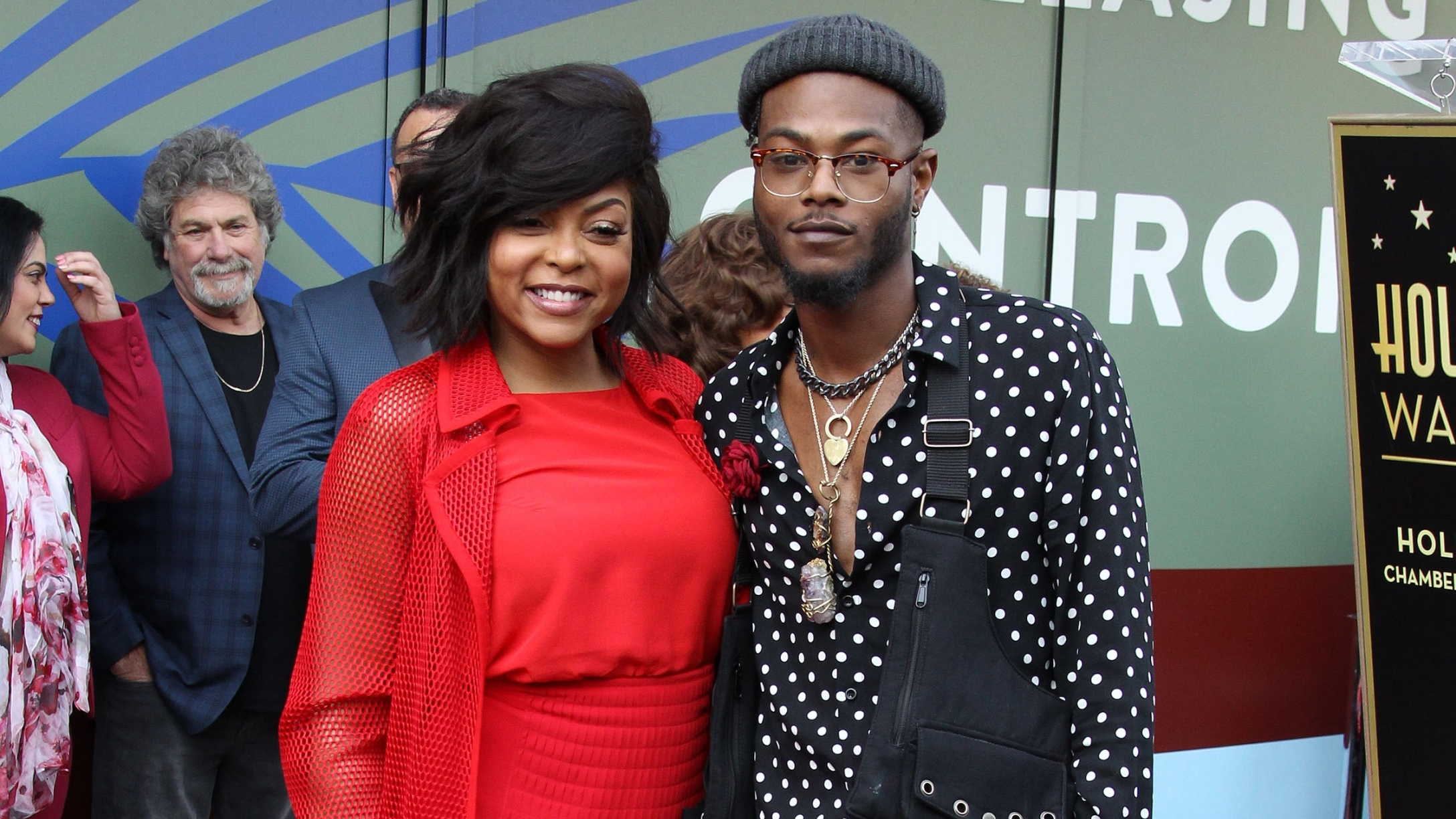
Taraji P. Henson opened up about one of the most difficult times in her life during a recent episode of her Facebook Watch series.
Peace of Mind With Taraji sees Taraji talk with a number of guests about life as a Black woman, a single mother, and more. In a new episode debuting Wednesday, she discusses grief and coping with sudden loss. She gets candid about her son's father's death.
Taraji had to tell her then 9-year-old son, Marcell Johnson, that his father, William LaMarr "Mark" Johnson, had died. She struggled with being able to tell the little boy the circumstances. Mark was stabbed to death in a dispute over slashed tires in 2003.
Taraji reveals how she decided to share only parts of the truth with her son — and how that impacted their relationship when he became old enough to learn the truth.
Taraji P. Henson has been through some seriously tough times in her life. On her Facebook Watch series Peace of Mind With Taraji, she's opening up about some of those moments as she makes emotional connections with her guests. In a new episode out Wednesday, she discusses shock, grief, and how to cope.
Taraji spoke about the matter while drawing from her own personal experience. She got candid about having to tell her son, Marcell Johnson, that his father had been murdered. Marcell was just 9 when his dad, William LaMarr "Mark" Johnson, was stabbed to death.
Telling her son the news was more difficult than Taraji could bear. She broke down in tears recalling the moment.
"My son's father was suddenly taken, murdered, when he was 9, and I didn't know how to tell him that," the 50-year-old actress told cohost Tracie Jade Jenkins and therapist Sierra Hillsman.
"I couldn't tell him he was murdered, so I told him he died in an accident."
Of course, that solution was only temporary. Marcell learned the truth when he got older, something he asked Taraji about.
"Later on in life he found out and he came back to me and was like, 'Why didn't you tell me my daddy was murdered?'" she recalled.
"And so then we had to get therapy."
Taraji asked Sienna how parents in a similar situation should handle telling their children. Sienna suggested that parents "use age-appropriate language" and explain that "sometimes there are situations where people do evil things to other people."
"I didn't have the balls. It wouldn't come out. I hid it," Taraji said.
"I read the, actually … It was in the paper and I didn't know how to tell him," she continued.
"He was stabbed to death, it was the worst way you could die. I just didn't have the words. I didn't know how to tell a 9-year-old."
The conversation was heart-wrenching, but it is a part of Taraji's mission with the series. She wanted to team up with her best friend to reduce the stigma of talking about mental health in the Black community.
"It's a peace of mind. It's educational, it's an opportunity for us to show you, actually, what it looks like inside of a therapist's room," she told Entertainment Tonight.
"[We hear], 'Boy, get over it. Man up! Tough it out, strong Black woman.' These things have been passed down, so to even talk about mental health, how do you do that when you've never talked about it? When it's been taboo?" she continued.
"'Pray it away, go talk to your pastor.' Those things that get us into trouble that don't allow us to heal from trauma. I mean, think about what we go through as Black people.
"Police brutality, microaggressions, not being paid equally … it's a lot. It's a lot to unpack, and we felt like we needed some kind of programming that you didn't have to pay for and makes you feel safe."
On another episode of the series, Taraji revealed that her depression got so bad in 2020 that she contemplated taking her own life.
"I started having thoughts about ending it. It happened two nights in a row," she explained.
"So one day I just blurted it out, to my girlfriend."
"She called me in the morning and I was like, 'You know, I thought about killing myself last night. Oh, my God, I feel so much better. I'm not gonna do it now,'" she continued.
"For me, I'm no professional, but I felt like, if I don't say it, then it becomes a plan. And what scared me was that I did it two nights in a row, and the thoughts kept coming."
Note: If you or any of your loved ones are struggling with suicidal thoughts, you can always reach out to the National Suicide Prevention Lifeline by calling 1-800-273-8255. They are available 24/7 by phone or online chat.




